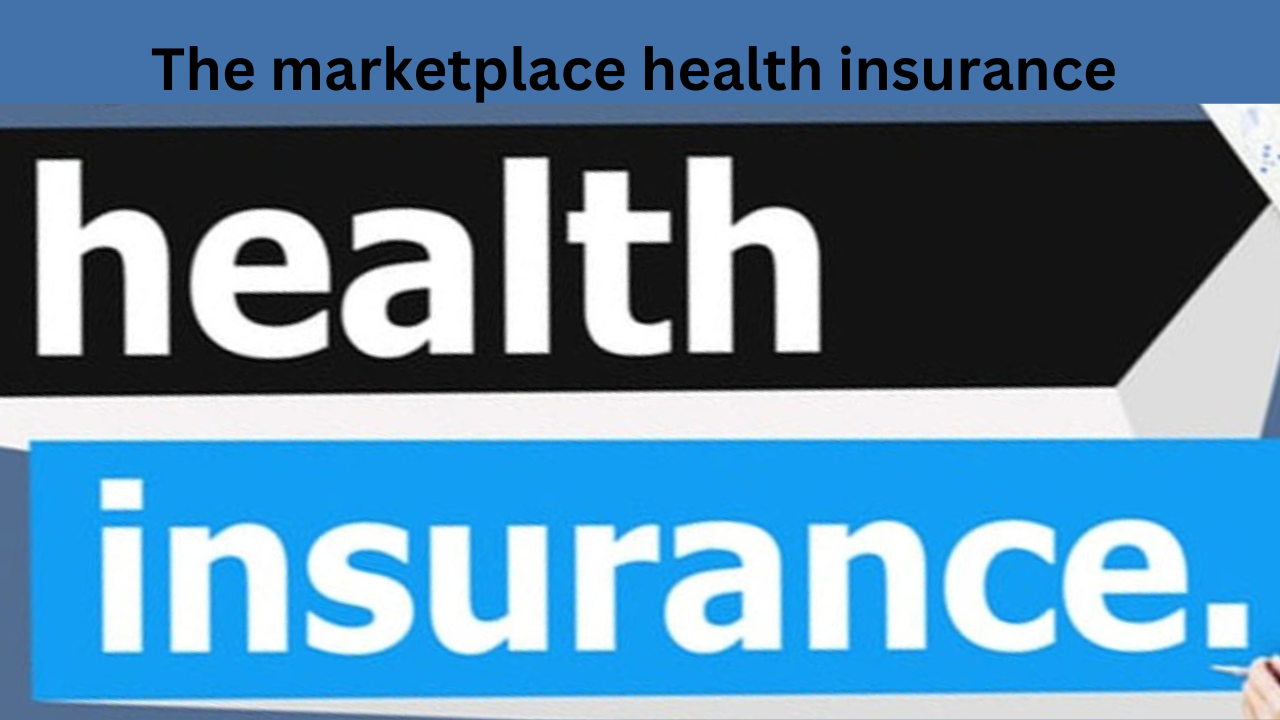The marketplace health insurance In today’s ever-changing healthcare landscape, it is important to fully understand the health insurance options available to individuals and families. One of these options is health insurance purchased through the Marketplace. This article will provide a comprehensive overview of Marketplace health insurance requirements, how they impact your taxes, and what you need to know to make an informed decision.
What is Marketplace health insurance?
Marketplace health insurance, also known as health insurance marketplace insurance, is a type of health insurance plan that individuals and families can buy through the Marketplace. The Marketplace, created by the Affordable Care Act (ACA), is a platform where qualified individuals can explore and compare different health insurance options offered by companies. Private insurance is provided.
Marketplace offers a variety of health insurance plans that vary in coverage, cost, and benefits. These blueprints are classified into four metal levels: Bronze, Silver, Gold, and Platinum. Which option to choose depends on each person’s health needs and budget.
Form 1095-A: Health Insurance Marketplace Statement
If you buy health insurance through the Marketplace, you will receive Form 1095-A, Health Insurance Marketplace Declaration, at the beginning of tax season. This form is essential for accurately completing your federal individual income tax return.
Form 1095-A provides important information related to your health insurance, including the total monthly premiums paid to the insurance company and the amount of premium assistance received in the form of interim payments. Apply tax credit for bonuses. It is essential to carefully check the accuracy of this form as any incorrect information could affect your tax return.
Reconcile premium tax credit advance payments
If you have elected to pay your premium tax credit advance payment directly to your insurance company, you must complete Form 8962, Premium Tax Credit, and file a federal income tax return.
Reconciliation involves comparing preferential tax credit advance payments received with the preferential tax credit amount calculated on your tax return. This is an important step to ensure the accuracy of your tax return and avoid any delays in receiving your refund or credit advance payment in the future.
Declare taxes and pay advance payments
Failure to file tax returns and failure to reconcile advance tax credit payments can have significant consequences. If advance payments have been made on your behalf and you do not reconcile them, you will not be eligible to receive advance payments or cost-sharing reductions for the following year. This means you will be responsible for paying the full cost of your premiums and covered services.
To avoid any disruption in receiving financial aid, it is essential to submit a tax return and reconcile the deposit amount by the due date. Electronic filing is recommended to increase the chances of a smooth process.
Access form 1095-A
If you purchase insurance through the federally backed Marketplace and create a HealthCare.gov account, you can access your Form 1095-A online. Visit your Marketplace website to learn how to retrieve your Form 1095-A. You can also use the Form 1095-A sent to you to complete your tax return.
Statement of changes and special registration periods
It is essential to promptly report any changes in circumstances, such as changes in household income or family size, to Marketplace. These changes may affect your premium tax credit advance payment. Reporting changes may make you eligible for a special enrollment period, which allows you to buy health insurance through the outside of regular open enrollment periods.
To estimate the impact of changes in circumstances on your premium tax credit, you can use the Premium Tax Credit Change Estimator available on the IRS website.
Small Business Health Options Program (SHOP)
The Small Business Health Options Program (SHOP) is a marketplace specifically designed to help small businesses provide to their employees.
SHOP Marketplace provides flexibility, choice, and online application and account management for small businesses and nonprofits. It allows employers to offer medical and dental insurance that meets the needs of the business and that of its employees. You can register for SHOP throughout the year, there is no limited registration period. Businesses that offer health insurance through SHOP may also qualify for the Small Business Health Care Tax Credit, providing additional financial relief. 
- Conclusion
Marketplace Health Insurance provides individuals and families with the ability to find coverage that fits their healthcare needs and budget. It’s important to understand what Marketplace health means for your taxes, including the need to reconcile prepayments with premium tax credits.
By staying informed, promptly reporting changes, and understanding available options, individuals can make informed decisions about their healthcare coverage and ensure they receive the support they need.
For more information and specific support, please refer to the contact information provided in the table below or visit the official HealthCare.gov website.
